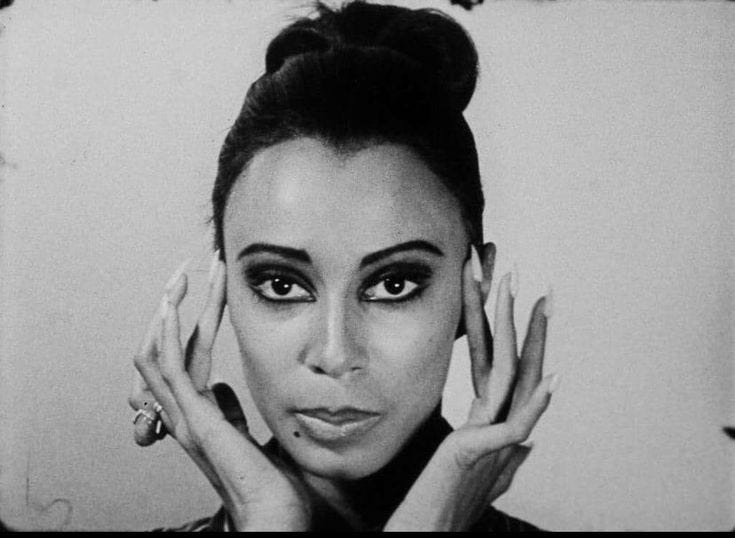#12. (ENG) On being the other woman, on being many women.
On being the other woman by Simone White, and many, many women (!)
I have been spending less time on the internet, less times on my phone, on social in general and investing a lot of time in orbit, printed paper. The needed materiality to make sense of the historical time in which we are in. A time in which we are constantly tested, changing, challenged, grieving, and when in luck loving. In between pages, and words I found new parts of self in a book from an unlikely title : On being the other woman by Simone White.
This book found me at a moment in which I thought, finally I had learnt to know myself. Finally I had learnt how to read, stretch and maneuver the different sides of my being in order to practice, or at least attempt at this thing called life.
As often happens to many of us, literature proved me wrong. “The only true wisdom is in knowing you know nothing”; it is a teaching by polymath Ibn Sina so how silly of me to think I knew something at all.
“It is some kind of shock to be of the orders and also talking about oneself” and yet, here I am assembling words to decipher the ways in which a title makes one, makes me question the, my - self as a woman, a woman body; my role as other. What does it mean to be other? Being the other woman? Or many women for what matters, at a time where we are capable of anything yet often relegated and pushed to nothingness.
Popularly, when I think about what it means to be “the other woman”, I can’t help but muse on how society has found more times than I’d like to admit the way to always make us, women “the other woman” to somebody. As if by default, there’s an implication, an hidden agenda where “being the other woman” means being a mistress, a number two to a number one, maybe? In relation to a partner. Unsurprisingly Michelet writes: “Woman, the relative being”.
There’s not one but two movies, both titled “The other woman”, and I won’t even mention the amount of times I have heard mistresses and “situationships” being referred as such. I have heard it in Italian, in English, in French, in Swahili and even Somali, so I can’t say that it’s solely Western concept.
In “The Second Sex” Simone de Beauvoir lays this theory bare “She is defined and differentiated with reference to man and not he with reference to her; she is the incidental, the inessential as opposed to the essential. He is the Subject, he is the Absolute – she is the Other.” De Beauvoir cleverly explores the many ways in which the majority of all conceptions of femininity were and as of today still are defined by male interest. I wonder though, what happens when you add another layer to being “inessential” ? What happens when you are woman and non-white? What happens when you are woman but also black or brown? What happens when you are woman and disabled? What happens when you are a woman and part of the LGBTQ+ community? What happens when you are just not “the other woman” to man, but another woman, many women solely to yourself. Solely to ourselves. Do we get to Being such? Other women, many, many women?
Theoretically black socialist in the United States coined the term Double Jeopardy as a way to refer the compounded discrimination or disadvantage individuals face when they belong to multiple marginalised groups. And although this term is very encompassing socially, it often fails to articulate the philosophical complexities of womanhood on an intellectual, personal almost cerebral level. It may be why thinkers such as Bell Hooks, poets within the likes of Rita Dove, Simone White herself, Audre Lorde, Anne Sexton, mutually philosophers Simone de Beauvoir, Molly Wollstonecraft, writers Oriana Fallaci have garnered the sought popular and critical acclaim that they have. To define, dissect and open certain parts of one’s experience, sociology is not enough, it can’t be. Thought must be accompanied with a certain intimacy of it, an intimacy derived from personal experience, the type that stares you in the faces and forces the omission of some sort of privacy.
An omission that White mentions often in the lines of on, or being the other woman as she shrivels within the narrative complexities of writing and living as a black woman and artist. “nor i forget i am the subject of opinion and whispers; that i have given up total privacy in writing about the real conditions of my life.”She writes. The same omission, that personally I accept and refuse in the same capacities, in hopes of retrieving a sense of womanhood that is more rooted in my strengths than in my vulnerabilities. But shouldn’t it be both?
To be other, on other, and many doesn’t one come in multitudes? Strong, vulnerable, and hard, and soft. Grand, little too, open and secretive. Isn’t that the truth, or better the reality of womanhood?
As I learn the beauty of coexisting, bending myself to omission of privacy in the name of vulnerability, I hope that I and we can continue to refuse notions that box us into places we are far greater than. At a time where cocooning individually, might seems the most comfortable and safest of the options I hope we find softness in openness, and embrace among others. Mostly among the many parts of ourselves. Other women, many, many, women.
Thank you for being here, reading and supporting this space. If you like what you see like sign up, and if you like it even more and you can, consider subscribing.
Until we unravel again!



